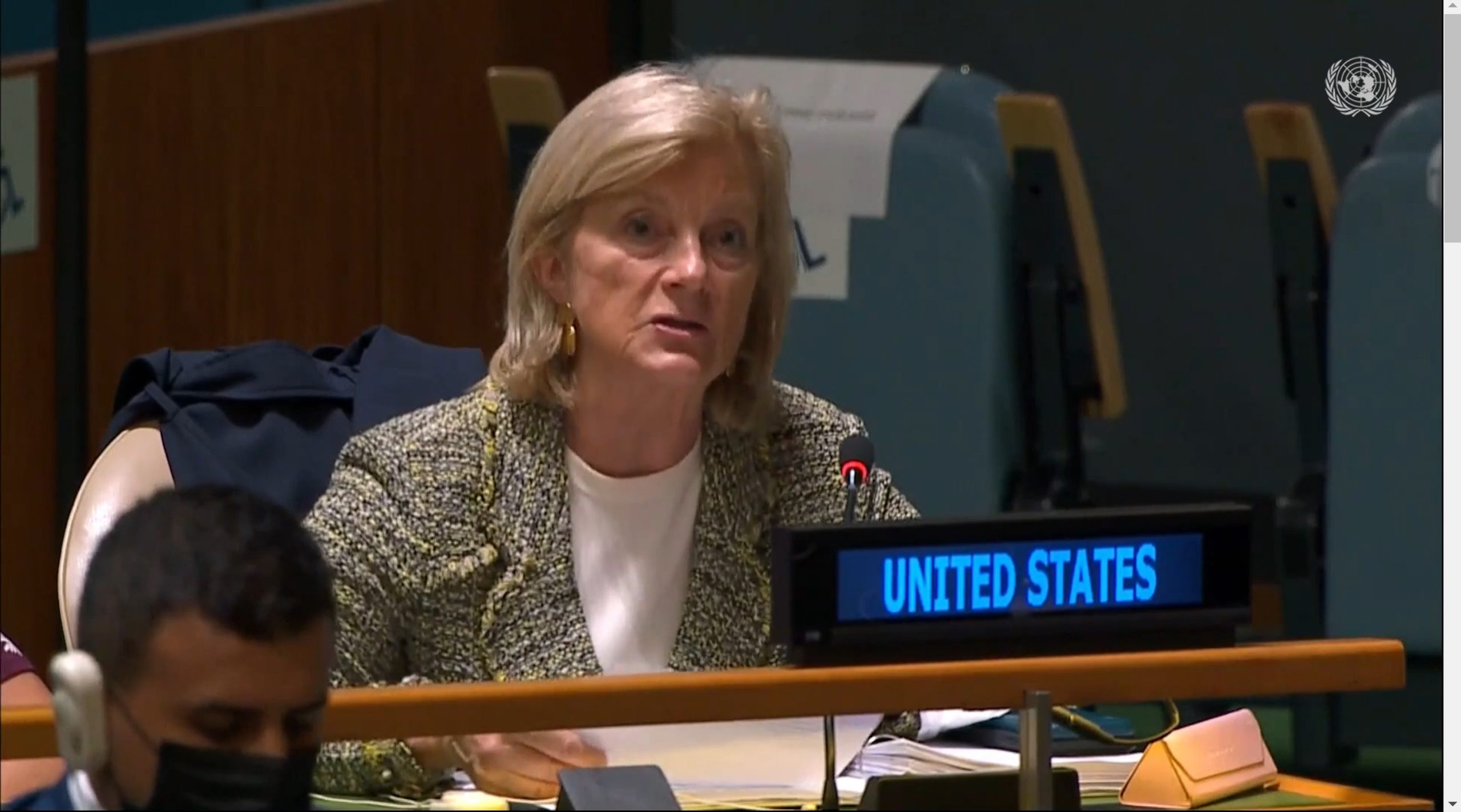This biannual resolution on strengthening the role of the UN in the promotion of democratisation and enhancing periodic and genuine elections was presented by the United States.¹ This year’s resolution focused on the right of women and girls to full political participation and representation and its importance for democracy, as well as on the responsibility of States to organise, conduct and ensure transparent, free and fair electoral processes inclusive of all citizens.
Critical developments in the resolution include Operative Paragraph 7 which ‘[…] calls upon States to take measures to eliminate laws, regulations and practices that discriminate, directly or indirectly, against citizens in their right to participate in public affairs, including based on […] sexual orientation and gender identity […]’.
Similarly, preambular paragraph 9, highlights ‘[…] the importance of including women in all their diversity on an equal basis in election processes that are free from discrimination and allow for their full, equal and meaningful participation, allowing for gender-responsive political institutions and the creation of more inclusive societies’.
While this resolution traces its origins back to at least 1988, this was the first time it included language referencing sexual orientation and gender identity (SOGI). By doing so, it became only the second GA resolution ever to explicitly mention SOGI. The first is a resolution on extrajudicial, summary or arbitrary executions, which referenced SOGI as grounds for discrimination that may motivate killings every two years the reference was included for the first time in 2011 (2013, 2015, 2017, 2020 and 2022).
Such a move was bound to draw objectors. Nigeria, on behalf of a group of countries, proposed a hostile amendment aimed at weakening the text, including by removing the references to ‘in all their diversity’ and SOGI. Thankfully the proposed amendments were both ultimately rejected. The amendment to OP7 was defeated with 90 votes against, 58 in favour and 13 abstentions, and the amendment to PP9 with 89 votes against, 56 in favour, and 12 abstentions.
Despite the obstacles, the resolution was adopted by consensus with 86 State cosponsors.² This showed increasing international support for the political participation of persons in all of their diversity, and for the rejection of discrimination on any ground, including on the basis of diverse sexual orientations and/or gender identities.
Civil society and members of the UN LGBTI Core Group celebrated the resolution. ‘Explicit reference to barriers to accessing free and fair elections based on sexual orientation and gender identity in a Third Committee resolution adopted by consensus is an important milestone both for the Committee itself and for our communities. It builds on progress to date in the recognition of the rights of LGBTIQ people at the UN,’ said ISHR’s Tess McEvoy.




